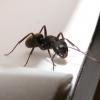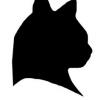- Formiculture.com
- Forums
- Gallery
- Members
- Member Map
- Chat

Nutritional sugar water for Camponotus. Ideas?
Started By
CampoKing
, Aug 5 2018 6:11 PM
10 replies to this topic
#1
 Offline
-
Posted August 5 2018 - 6:11 PM
Offline
-
Posted August 5 2018 - 6:11 PM
Anybody do anything special for their long term sugar water supply for Camponotus?
- DaveJay likes this
#2
 Offline
-
Posted August 5 2018 - 9:28 PM
Offline
-
Posted August 5 2018 - 9:28 PM
I'm also interested in this.
I know raw sugar is less processed and has more nutritional value than other processed sugars so that is preferable, but I'm wondering if adding vitamins or protein is a good idea. The first thing that springs to mind regarding protein is gelatine, it's derived from beef and contains about 40% animal protein if I remember correctly, it would add greatly to the "stickiness" though. I'm not meaning add enough to make jelly, but just enough to increase viscosity.
To change things up a bit with this batch of sugar water I've added golden syrup as well as raw sugar but I quailed on the gelatine and put it back in the cupboard.
I also bought honey yesterday and will use that along with the raw sugar in my next batch of sugar water because I figure changing the sugar water each time will provide a better range of nutrients.
It will be good to know what other people use or have tried, even the failures will be useful.
I know raw sugar is less processed and has more nutritional value than other processed sugars so that is preferable, but I'm wondering if adding vitamins or protein is a good idea. The first thing that springs to mind regarding protein is gelatine, it's derived from beef and contains about 40% animal protein if I remember correctly, it would add greatly to the "stickiness" though. I'm not meaning add enough to make jelly, but just enough to increase viscosity.
To change things up a bit with this batch of sugar water I've added golden syrup as well as raw sugar but I quailed on the gelatine and put it back in the cupboard.
I also bought honey yesterday and will use that along with the raw sugar in my next batch of sugar water because I figure changing the sugar water each time will provide a better range of nutrients.
It will be good to know what other people use or have tried, even the failures will be useful.
#3
 Offline
-
Posted August 6 2018 - 7:44 AM
Offline
-
Posted August 6 2018 - 7:44 AM
I typically use the turbinado (raw) sugar too, and even notice my Carpenters take less interest in pure white sugar water.
I also use maple syrup water, and the same Carpenters prefer that even more. I prefer real maple syrup because I feel it's closer to what they eat in the wild in some ways, since it's made from tree sap.
Only thing I'm testing right now is if they treat spring water different from mineral water.
As far as protein, I keep that as a separate food, and just use rehydrated freeze-dried insects. (Another quirk is my ants prefer whole or partial bugs over crushed ones. They have expressive personalities)
I also use maple syrup water, and the same Carpenters prefer that even more. I prefer real maple syrup because I feel it's closer to what they eat in the wild in some ways, since it's made from tree sap.
Only thing I'm testing right now is if they treat spring water different from mineral water.
As far as protein, I keep that as a separate food, and just use rehydrated freeze-dried insects. (Another quirk is my ants prefer whole or partial bugs over crushed ones. They have expressive personalities)
- DaveJay likes this
#4
 Offline
-
Posted August 6 2018 - 8:05 AM
Offline
-
Posted August 6 2018 - 8:05 AM
Hummingbird nectar, a splash of water, a couple teaspoons of sugar, and a splash of maple syrup.
There is no exact science to my sugar water mixture but i think that's good. ants won't be bored with the sugar water they get.
- Ant Broski and DaveJay like this
#5
 Offline
-
Posted August 6 2018 - 3:25 PM
Offline
-
Posted August 6 2018 - 3:25 PM
I'm going to experiment with honey, maple syrup, water, and sugar mixture today...
- Ant Broski and DaveJay like this
#6
 Offline
-
Posted August 6 2018 - 5:33 PM
Offline
-
Posted August 6 2018 - 5:33 PM
You can add some liquid amino acid to the mix, but make sure to buy pure amino acid supplements, not the ones with vitamins. Here's a website that explains it: http://www.antfinity...ydew-surrogate/
- DaveJay likes this
#7
 Offline
-
Posted August 6 2018 - 9:19 PM
Offline
-
Posted August 6 2018 - 9:19 PM
I had come across that article, I've been looking into using Royal Jelly for its' various amino acids/proteins. To me Royal Jelly looks to contain a mix of nutrients that these 'nectars' are trying to provide, I think the same site had an article on Royal Jelly too.You can add some liquid amino acid to the mix, but make sure to buy pure amino acid supplements, not the ones with vitamins. Here's a website that explains it: http://www.antfinity...ydew-surrogate/
#8
 Offline
-
Posted August 6 2018 - 10:16 PM
Offline
-
Posted August 6 2018 - 10:16 PM
The most important characteristic of any liquid sugar solution is that the ants readily accept it over the long-term of keeping them in captivity. The benefit of adding other ingredients such as vitamins, minerals, or proteins, or changing the type of sugar, is completely unsupported by the available scientific literature, and can actually be harmful if it causes the ants to not consume the sugar as readily. Just stick to whatever your ants most readily accept, which is most most often going to be some specific ratio of white sugar and water.
Ant species have evolved a variety of diets and accompanying, hyper-specialized intestinal microbes which help process and upconvert nutrients found in their natural diet. You will see the greatest benefit from a liquid sugar mixture that is always accepted, over one that is filled with nutrients the ants may be unable to metabolize.
Edited by drtrmiller, August 6 2018 - 10:17 PM.
- DaveJay likes this
byFormica® is the manufacturer of the iconic nectar feeders and Sunburst Ant Nectar.
byFormica ant products always deliver consistent performance, convenience,
and reliability, making them among the most beloved ant foods and kit enjoyed by
ant keeping enthusiasts worldwide. For more information, visit www.byFormica.com.
#9
 Offline
-
Posted August 8 2018 - 5:08 AM
Offline
-
Posted August 8 2018 - 5:08 AM
I certainly see your point, if it's unpalatable you're wasting your time.The most important characteristic of any liquid sugar solution is that the ants readily accept it over the long-term of keeping them in captivity. The benefit of adding other ingredients such as vitamins, minerals, or proteins, or changing the type of sugar, is completely unsupported by the available scientific literature, and can actually be harmful if it causes the ants to not consume the sugar as readily. Just stick to whatever your ants most readily accept, which is most most often going to be some specific ratio of white sugar and water.
Ant species have evolved a variety of diets and accompanying, hyper-specialized intestinal microbes which help process and upconvert nutrients found in their natural diet. You will see the greatest benefit from a liquid sugar mixture that is always accepted, over one that is filled with nutrients the ants may be unable to metabolize.
I guess I'll stick to using raw sugar (white sugar has no reason for being, I don't know why anyone would prefer it over raw, little nutritional value and adds to environmental damage for no good reason imo) and spring/mineral water and concentrate instead on finding the right ratio.
That said, I've been making my own frozen fish food for 33 years now, adapting it to different fish types and also make a similar food for lizards too and I just feel like I could come up with similar product to provide ants with protein. All I've done so far is to mix frozen bloodworms with some mineral water and freeze it in snap-lock bags so I can snap pieces off and put in the feeders, this has been very readily accepted on most occasions, sometimes it seems to me that the same ant has been eating it non-stop for days as there's always one at the dish! Adding a bit of gelatine would make it more stable and add to the range of proteins so I am tempted to try it. Of course a range of other foods would still be offered but it would be good to have a slab of suitable protein food on hand to quickly fill a feeder while replacing the sugar water in another feeder. That way you'd know the ants have access to protein and sugar at all times, I keep a lot of animals so I avoid pets that NEED daily feeding, some things need to be streamlined. If I experiment I'll record the results in my journal.
Edited by DaveJay, August 8 2018 - 5:31 AM.
- rbarreto likes this
#10
 Offline
-
Posted August 8 2018 - 6:03 AM
Offline
-
Posted August 8 2018 - 6:03 AM
Honey and Royal Jelly: Even though bees and ants are in the same taxonomic order, that doesn't mean that either honey or Royal Jelly is as beneficial to ants as it would be to bees, because ants evolved a variety of diets and accompanying intestinal microbes to help process and upconvert nutrients found in their natural diet, completely separate from bees. Honey also contains molds, yeasts, bacteria, and other nasty things that spring back to life the moment water is added.
Gelatin: Per FDA regulations, any food with an amino acid score of less than 20 is to be labeled as "not a significant source of protein." Gelatins, as well as other products that contain lots of gelatin (i.e. pork rinds), are labeled this way. This simply means the food contains a small number of very common amino acids, so a person would get a protein deficiency if only consuming that type of protein, no matter how much they ate of it. The same would likely apply to ants. Animal gelatin is not a quality source of protein, even though it contains an abundance of some very common proteins.
Amino Acid Mixture: The amino acid mixture referenced above is a recipe created by a hobbyist and published on an internet blog. So far as I could see, the authors haven't cited any scientific literature as a basis for its qualitative performance. There have been some studies of holidic diets—that is, fully chemically defined diets—(the Straka and Feldhaar diet comes to mind), which have failed multiple replication attempts in other cited literature. This is not a recipe I would recommend the average hobbyist undertake, unless just for fun.
Edited by drtrmiller, August 8 2018 - 6:10 AM.
- Scrixx and DaveJay like this
byFormica® is the manufacturer of the iconic nectar feeders and Sunburst Ant Nectar.
byFormica ant products always deliver consistent performance, convenience,
and reliability, making them among the most beloved ant foods and kit enjoyed by
ant keeping enthusiasts worldwide. For more information, visit www.byFormica.com.
#11
 Offline
-
Posted August 8 2018 - 8:38 AM
Offline
-
Posted August 8 2018 - 8:38 AM
Thanks for the insights.
Honey and Royal Jelly: Even though bees and ants are in the same taxonomic order, that doesn't mean that either honey or Royal Jelly is as beneficial to ants as it would be to bees, because ants evolved a variety of diets and accompanying intestinal microbes to help process and upconvert nutrients found in their natural diet, completely separate from bees. Honey also contains molds, yeasts, bacteria, and other nasty things that spring back to life the moment water is added.
Gelatin: Per FDA regulations, any food with an amino acid score of less than 20 is to be labeled as "not a significant source of protein." Gelatins, as well as other products that contain lots of gelatin (i.e. pork rinds), are labeled this way. This simply means the food contains a small number of very common amino acids, so a person would get a protein deficiency if only consuming that type of protein, no matter how much they ate of it. The same would likely apply to ants. Animal gelatin is not a quality source of protein, even though it contains an abundance of some very common proteins.
Amino Acid Mixture: The amino acid mixture referenced above is a recipe created by a hobbyist and published on an internet blog. So far as I could see, the authors haven't cited any scientific literature as a basis for its qualitative performance. There have been some studies of holidic diets—that is, fully chemically defined diets—(the Straka and Feldhaar diet comes to mind), which have failed multiple replication attempts in other cited literature. This is not a recipe I would recommend the average hobbyist undertake, unless just for fun.
Since reading your comment I have been researching gelatine, I had researched years ago when deciding whether to use it in fish food but of course I needed to refresh my knowledge.
For one thing, 40% protein refers to the made jelly, dry gelatine is 98/99% protein, I had gotten that wrong in my initial comment.
The reason it is considered an incomplete protein is because it doesn't contain all the essential amino acids, notably Tryptophan is missing but that is easily obtained from other protein sources. So yes, it cannot be used as the sole protein source but it is so rich in other essential amino acids (proteins) that it is still a very good source of protein, it contains no fats or sugars unlike most sources of protein, yet contains proteins that the human body can easily convert to 'sugar' if needed.
It is also the richest source of Glycine you can find.
I read page after page detailing the health benefits of Gelatine and the proteins it contains, not just on "health" sites but scientific sites too, not to mention the actual scientific research papers themselves. I'm on a phone so can't post supportive links atm, but there were far too many to post anyway.
I think we all know about the anecdotal health benefits of broth, which is very rich in gelatine, they used to say it could cure death! (Well, anything but death)
Therefore I really must dismiss some of your comments regarding Gelatine, true that it cannot be a sole source of protein, but it is a good supplementary source by all accounts. Some of the amino acids it contains are said to help to more completely utilise the proteins from other sources while others can be scarce in other protein sources.
I won't go into the exact breakdown of which proteins it contains in what percentages as these are easily found online and I won't struggle through trying to list them exactly just relying on memory.
All in all I think that Gelatine can't be dismissed so easily, combined with other protein sources (like the bloodworms I use perhaps) I think it could be useful.
One thing that might be relative is that the composition of gelatine can vary depending on the production process, perhaps the cheapest gelatine in the supermarket is not as good as one marketed as a dietary supplement, you never know with these things, sometimes the price just reflects a different brand or label and doesn't indicate quality.
Now for amino acid bodybuilding supplements and the like I really don't know, I'm much more dubious of them.
It's past 2am now so I'm going to start looking into them!
Again, thank you for your insights.
1 user(s) are reading this topic
0 members, 1 guests, 0 anonymous users


















